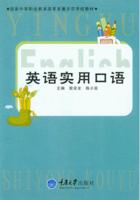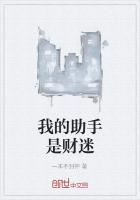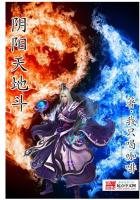我依然记得第一晚见到他时的情景。那时的他无异于一个身材削瘦,眼中透着焦虑的孩子。他穿戴整齐,我知道他是在等他的女友,并且在她到后20分钟,他们将举行婚礼。
好了,旅客们来了,我得去忙了。直到9点18分我才又有时间往楼梯那边看,令我吃惊的是那年轻人还在那儿。
她既没乘9点18的车,也没乘9点40的车到。等10点02的那次车的旅客都出站后,哈里看起来很失望。不一会儿,他走近我的窗口,我招呼他,问他,她长什么样。
“她矮小的个子,黝黑的皮肤,”他说,“19岁。走起路来干脆利落。她的脸嘛,”他想了一会说,“蕴含着丰富的表情,我是说她会生气,但从不会持续太久。她眉心有颗小痣。她有件棕色毛皮大衣,但也有可能没穿。”
我似乎没见过这样的人。
他拿出电报给我看:“周四到。车站接我。爱爱爱爱。——梅。”电报是从内布à斯加州的奥马哈市发来的。
“噢,”最后,我说,“你怎么不往家里打个电话?如果她比你先到这儿,她可能已经给你家打电话了。”
他忧郁地看着我,“我才来城里两天。我们约定见面后开车去南方,我工作的那个地方。她根本没有我的地址。”他摆弄着电报。
我第二天去值班时,看到他还在那儿。一见到我,他就立刻朝我走来。
“她在哪儿工作过呢?”我问。
他点头,说道:“她来是打字员。我给她来的老板发过电报。他们只知道她辞职结婚去了。”
接下来的三四天,哈里接了每趟火车。当然,铁路方面也进行了检查,警察也介入了此事。但事实上也没能帮上他的忙。看得出来,他们都认为梅只是和他开了个玩笑,但不知为什么,我却从不那么认为。
大约两周后的一天,与哈里聊天时,我把我的想法告诉了他,“如果你等了足够长的时间,”我说,“总有一天,你会看到她从那边楼梯处走来。”他转过身直勾勾地望着楼梯,就好像从未见过它。
第二天上班时,我发现哈里已站在托尼的杂志摊后面了。他有点儿羞怯地看着我说,“哦,我得找份工作干,是吧?”
就这样他给托尼卖起了杂志。我们没再谈梅,也不提我曾经的那个想法。但是我发觉哈里还是爱看走过楼梯的每个人。
年底,托尼因赌博与别人发生争执而被杀。他的妻子将杂志摊完全交给哈里去打理。不久她再婚了,哈里就把杂志摊买了下来。他又借了些钱,装了个冷饮机,不久小买卖就红火起来。
直到昨天,哈里的生活才有了变化。当时,我听见一阵喊声,随后是东西落地的声音。是哈里在叫。他跳出柜台,把柜台上陈列的玩具和其它东西都掀·在地,然后从这些东西上跑过去,抓住了一个离我窗户不到10英尺远的女孩。她个子矮小,皮肤黝黑,眉心处有颗小痣。
他们对视了好一会儿,又哭又笑,语无伦次地说着话。她好像说:“我说的是汽车站——”而他则用热吻捂住了她说话的嘴,告诉她,在找她的过程中所发生的一切。显然,梅3年前是坐汽车来的,而不是火车。她的电报里指的是“汽车站”而不是“火车站”。她在汽车站等了好几天,为了找哈里,她把身上所有的钱都花光了。后来,她找了份打字员的工作。
“什么?”哈里说,“你一直在城里工作?直到现在?”
她点了点头。
“啊,天哪!难道你从没来过这个车站吗?”他用手指了指杂志摊。“我一直都在那儿。那个摊儿是我的。我留意着每个走过楼梯的人。”
她的脸色变得有些苍白。接着,她向楼梯望去,用微弱的声音说道:“我从没走过这个楼梯。你看,昨天我出差了。哦,哈里!”然后她用手臂搂紧他的脖子,开始哭了起来。
过了一会儿,她往后站了站,用手指着车站最北头说:“哈里,3年来,整整3年,我就在那儿——这个车站的站长办公室当打字员。”
爱是陪伴
If Only I Had Known…
佚名 / Anonymous
Thomas Carlyle lived from 1795 until 1881. He was a Scot essayist and historian. During his lifetime he became one of the world's greatest writers. But he was a human and humans make mistakes.
On October 17, 1826, Carlyle married his secretary Jane Welsh. She was an intelligent, attractive and somewhat temperamental daughter of a well-to-do doctor. They had their quarrels and misunderstandings, but still loved each other dearly.
After their marriage, Jane continued to serve as his secretary. But, after several years of marriage, Jane became ill. Being a hard worker, Carlyle became so absorbed in his writings that he let Jane continue working for several weeks after she became ill. She had cancer, and though it was one of the slow growing kind, she finally became confined to her bed. Although Carlyle loved her dearly, he very seldom found time to stay with her long. He was busy with his work.
When Jane died they carried her to the cemetery for the service. The day was a miserable day. It was raining hard and the mud was deep. Following the funeral Carlyle went back to his home. He was taking it pretty hard. He went up the stairs to Jane's room and sat down in the chair next to her bed. He sat there thinking about how little time he had spent with her and wishing so much he had a chance to do it differently. Noticing her diary on a table beside the bed, he picked it up and began to read it. Suddenly he seemed shocked. He saw it. There, on one page, she had written a single line. "Yesterday he spent an hour with me and it was like heaven; I love him so."
Something dawned on him that he had not noticed before. He had been too busy to notice that he meant so much to her. He thought of all the times he had gone about his work without thinking about and noticing her. Then Carlyle turned the page in the diary. There he noticed she had written some words that broke his heart. "I have listened all day to hear his steps in the hall, but now it is late and I guess he won't come today."
Carlyle read a little more in the book. Then he threw it down and ran out of the house. Some of his friends found him at the grave, his face buried in the mud. His eyes were red from weeping. Tears continued to roll down his cheeks. He kept repeating over and over again, "If I had only known, if I had only known." But it was too late for Carlyle. She was dead.
After Jane's death, Carlyle made little attempt to write again. The historian says he lived another 15 years, "weary, bored and a partial recluse." I share the story with in the hope that you will not make the same mistake. While our loved ones must have the money we make to live, it is the love we have that they really want. Give it now before it is too late.
托马斯·卡莱尔生于1795年,卒于1881年,是苏格兰散文家和历史学家。他为写作事业倾尽毕生精力,最终成为世界最伟大的作家之一。但他毕竟是个凡人,是凡人就难免要犯错误。
1826年10月17日,卡莱尔和他的秘书简·威尔斯喜结良缘。简出生在一个富裕的医师之家,她聪慧、迷人,就是有时脾气坏点儿。夫妻俩虽然有时会发生争吵和误解,但感情还是不错的。
婚后,简仍做卡莱尔的秘书。几年后,简病了,但仍带病工作。由于卡莱尔全身心地投入写作,便也没有劝阻简。简患的是癌症,虽然病情发展很慢,但最终她还是倒下了。尽管卡莱尔深爱着简,但因一直忙于工作,很少能有时间陪她。
简去世了,亲朋好友都来参加了葬礼。那是个令人悲痛的日子。天下着倾盆大雨,道路泥泞不堪。回到家,卡莱尔的心情异常沉重。他上楼来到简的房间,坐在她床边的椅子上。想到自己很少抽时间陪爱妻,不禁后悔至极,恨不得时间能够倒流。他看到简的一本日记在床头桌上放着,便顺手拿起来看。他震惊了,他看到她这样写道:“昨天他陪了我一个小时,我感受到了天堂般的幸福,我真喜欢他总这样。”
他意识到自己忽略了很多。一直以来他都把精力投入到工作中,竟全然不知对于妻子来说自己是多么的重要。他想起了那些埋头工作,置妻子于不顾的日子。·看着简的日记,几句令他心碎的话映入眼帘,“我一整天都在倾听,期望大厅能传来他的脚步声,但是现在已经很晚了,我想今天他不会来了。”
卡莱尔又读了一会儿,然后扔掉日记本,冲出了房间。朋友们在墓地找到他时,他满脸泥浆,眼睛哭得红肿,泪水还不停地从脸旁滑过,他反复念叨着:“假如当初我知道就好了,假如当初我知道就好了”但为时已晚,简已永远离他而去。
简死后,卡莱尔很少再尝试去创作了。这位历史学家说,在妻子死后的15年,他的生活完全变了个样,生活对于他来说只是“苦闷、无聊与孤寂”。我把这个故事讲给大家,是希望你们不要重蹈覆辙。爱人是需要我们去努力工作赚钱的,但他们更需要我们的爱。不失时机地去关爱你所爱的人吧。
爱走过风雨
Enduring Love
佚名 / Anonymous















